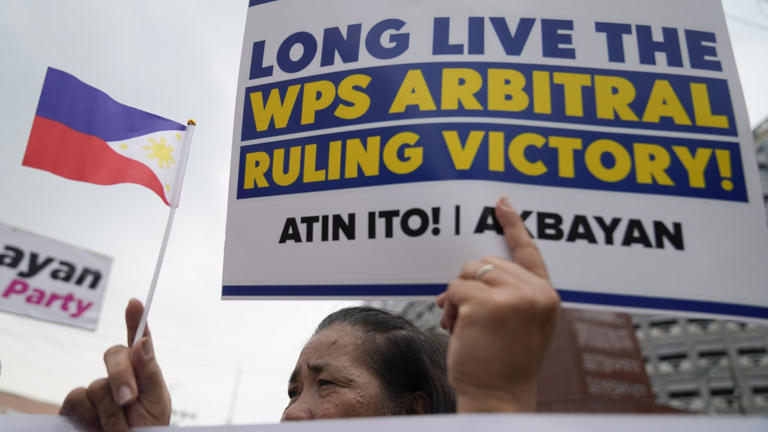The United States’ renewed call on China to halt its aggressive actions in the South China Sea underscores escalating tensions and the international community’s commitment to maintaining a rules-based order in one of the world’s most contentious maritime regions. At a diplomatic forum in Manila, U.S. Ambassador MaryKay Carlson, alongside counterparts from key allies like Japan and Australia, voiced deep concern over recent incidents, particularly the clash at Second Thomas Shoal.
The June 17th confrontation, where Chinese coast guard personnel used aggressive tactics against Philippine navy vessels, resulted in injuries to Filipino sailors and the confiscation of military equipment. This incident marked a significant escalation in a series of high-seas disputes between China and neighboring countries, including the Philippines, Vietnam, Malaysia, Brunei, and Taiwan, over territorial claims and maritime rights.
Ambassador Carlson emphasized the urgent need for China, referred to as the People’s Republic of China (PRC), to cease its provocative actions, including interference with the lawful operations of Philippine vessels within their exclusive economic zone (EEZ). This call is part of broader international efforts to uphold freedom of navigation and respect for international law, crucial for stability and security in the Indo-Pacific region.
The Biden administration’s strategy in Asia involves strengthening security alliances and partnerships to counterbalance China’s assertiveness. This approach aligns with Philippine President Ferdinand Marcos’s efforts to bolster national defense capabilities amid growing regional tensions. However, Beijing has adamantly opposed these efforts, viewing them as attempts to contain its influence and restrict its territorial ambitions.
The forum coincided with the anniversary of a landmark 2016 ruling by an arbitration panel in The Hague, which invalidated China’s expansive claims in the South China Sea. Despite international legal rulings and condemnation, China has refused to acknowledge the decision, continuing to assert its claims through military presence and construction activities on disputed islands and reefs.
Protests in Quezon City underscored public sentiment in the Philippines, with demonstrators rallying against China’s perceived intrusions and advocating for the enforcement of the arbitral ruling. Australian Ambassador HK Yu highlighted the dangerous pattern of behavior by China, which includes aggressive maneuvers that risk escalating conflicts and endangering lives in the region.
Japan, grappling with its own maritime disputes with China in the East China Sea, reiterated its commitment to supporting the Philippines through practical assistance, such as providing patrol ships and enhancing maritime surveillance capabilities. This solidarity among allies aims to deter further escalation and promote peaceful resolutions to territorial disputes in line with international legal frameworks.
Philippine national security adviser Eduardo Ano emphasized the country’s stance on seeking diplomatic solutions while firmly resisting coercion and external pressures that threaten its sovereignty and security interests. The diplomatic gathering in Manila underscored the complexities of managing maritime disputes and the importance of collective action to safeguard regional stability and uphold the principles of international law in the South China Sea.
